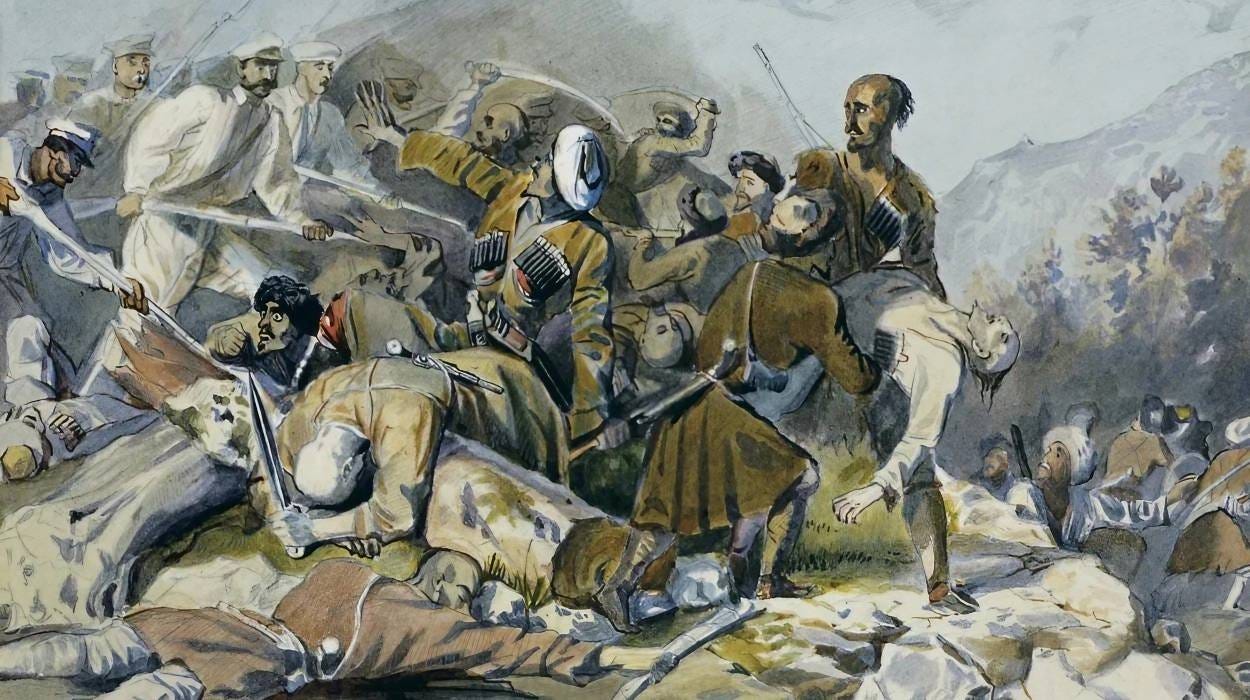This year, on the 159th anniversary of the historical genocide and exile events, Circassians and Abkhazians in Turkey will stand in unity to declare, "This is genocide." They will articulate their demands concerning the tragic circumstances they endured. The significant anniversary, falling on May 21st, will be marked with various activities and events.
As this pivotal date approaches, Turkish Circassian associations and federations, representing the most extensive Circassian diaspora globally, are accelerating their preparations for May 21st.
A New Monument to Honour Russian-Caucasian War Victims to be Unveiled in Turkey
On the Day of Remembrance of the Russian-Caucasian War victims, this May 21st, Turkey is set to host a formal inauguration of a new monument. The ceremony will be graced with the presence of an official delegation from Abkhazia, including parliament members and the chairman of the Republic of Abkhazia's State Committee for Repatriation.
Crafted by Assoc. Dr. Ceyhun Konak and standing on the coast of Kefken Babalı Village, the monument reaches eight metres high, with its pedestal adding another two metres to its impressive stature. The historical academic research for the project was diligently conducted by Dr. Oğuz Polatel, a distinguished instructor and researcher in the field.
The Exodus of Abkhazians During the 19th Century: Resistance, Uprisings, and Exile
Throughout the 19th century, the Russian-Caucasian War brought about significant changes in the geopolitical landscape of the region. The conflict between the Russian Empire and the native peoples of the Caucasus led to significant population displacements, including those of the Abkhazians.
Prof. George Anchabadze, a renowned expert on Abkhazian history, sheds light on the numerous uprisings and forced migrations that this ethnic group experienced during this tumultuous period.
Turkish version: Rus-Kafkas Savaşı: 19. Yüzyılda Abhazların Direnişi, İsyanlar ve Sürgün
The Russian-Caucasian War came to an end on May 21, 1864, forcing thousands of Abkhazian and Circassian people forced to leave their ancestral lands and relocate to the Ottoman Empire, eventually moving on to other countries. The Day of Remembrance for the victims of the Russian-Caucasian War is observed annually by Abkhazian and Circassian communities worldwide. Today, descendants of the mukhadzhirs (exiles) reside in numerous countries, with Turkey hosting the largest diaspora.
At a gathering in Sukhum, Abkhazia, on May 31, 1990, 30,000 representatives of the Caucasian mountain peoples unanimously passed a resolution. This resolution acknowledged May 21, 1864, the day marking the end of the Caucasus War, as a day of remembrance for the war's victims and those who endured forced deportation.
DECLARATION OF THE ASSEMBLY OF THE MOUNTAIN PEOPLES OF THE CAUCASUS
To: UN Secretary-General Perez de Cuellar
USSR President Mikhail Gorbachev
Turkish President Turgut Ozal
We, the representatives of the mountain peoples of the Caucasus, have assembled in Sukhum, the capital of the Abkhaz ASSR, to honour the memory of our ancestors who gave their lives for the freedom and independence of the Caucasus and to extend the hand of brotherhood to our compatriots, the muhajirs, who were forced to move abroad.
Striving for freedom and independence has always been part of the national consciousness of the mountaineers. The struggle in defence of these great ideals has left in our history many heroic and tragic pages.
However, the greatest test we ever faced was the 50-year-long anti-colonial struggle against the Russian Empire. The autocracy set as its goal not only the conquest of the Caucasus but the extermination and expulsion of the mountaineers. That goal defined the barbaric character of the war which in essence was a genocide directed against our people.
Hundreds of thousands of them died from hunger and disease. Those who remained either had to withdraw into the mountains or were forced to leave their much-beloved Motherland. There are today millions of expelled mujahirs living beyond the borders of our fatherland. Homeless and dispersed throughout the world, the mountaineers suffer both abroad and in the homeland. But despite all they have undergone, we retain a holy hope that we will be able to join together again on our native land.
The profound democratic changes that have taken place in the Soviet Union give our people a historic change to restore justice.
We are certain that now on the brink of the 21st century and with the help of the Soviet Union, Turkey and the International community, that the mountain peoples will achieve their goal.
In the name of the Assembly of the Mountain Peoples of the Caucasus, we call for the following steps to be taken:
1. Recognition of the day of the end of the Caucasus War, May 21, 1864, as a day of memory for the victims of that war and for those who suffered forcible deportation.
2. Establishment of a single international program to restore the cultural, scholarly and other ties of the Caucasus mountaineers with their compatriots abroad.
3. Creation of favourable conditions for the repatriation of the representatives of the mountaineers of the Caucasus and restore together with them the homeland of the mountaineers.
This resolution was adopted by a meeting of 30,000 representatives of the mountain peoples of the Caucasus at Sukhum, Abkhazia, on May 31, 1990.
Yu.M. Shanibov, President of the Coordinating Council of the Assembly of the Mountain Peoples of the Caucasus.
S.M. Shamba, President of the "Aydglara" Forum of Abkhazia.
The National Forum of Abkhazia.
Further reading
Abkhazia and the Caucasian War: 1810-1864, by George Anchabadze
Lapinski: Abkhaz people are the last in the Caucasus who still put up resistance to the Muscovites
21 May 1864: From Dmitri Kipiani to Grand Duke Mikhail Nikolaevich Romanov
Georgii Tsereteli (1879): It’s time that we grab new territories in the Caucasus
Who should be settled in Abkhazia? By Jakob Gogebashvili (1877)







